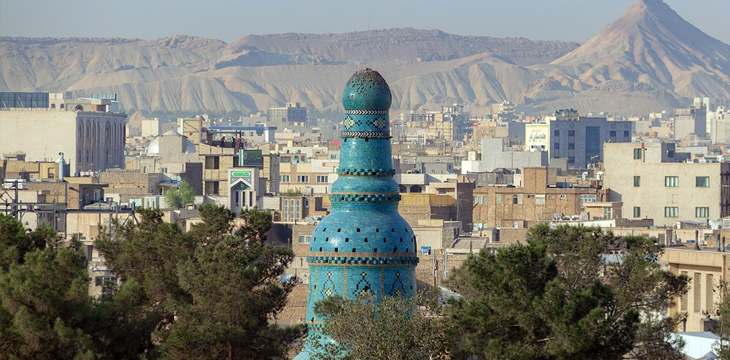|
Getting your Trinity Audio player ready...
|
Turkish block reward mining company iMiner received regulatory approval from Iran’s Ministry of Industry, Mine and Trade to set up BTC mining operations within their borders.
According to news reports by PressTV, the license allows the 7-year-old iMiner to process digital tokens and offer trading and custody services in Iran. The charter permits the company to operate with a digital currency mining farm in the central city of Semnan.
iMiner will invest 311 billion rial ($7.3 million) in setting up the facility, where 6,000 machines are expected to generate 96,000 terahash per second (TH/s) of computing power. iMiner’s investment is reported to be the most substantial blockchain investment in the country and its facility, the biggest Bitcoin mining farm in Iran.
The Antalya, Turkey-based company reportedly owned by Afrand Sheid Mehr promotes itself as experienced “in Bitcoin mining and investing in the mining sector.” iMiner also operates the Aladdin series of ASIC machines. They claim to have digital currency mining operations in Turkey, Russia, the U.S, Canada, and Iran.
Previously the Iranian government appeared suspicious of digital currencies and proceeded with caution because of the electricity-intensive process strain on Iran’s national power grid.
In 2019, Bitcoin mining received official recognition as an industrial activity. Since then, Iran has issued over 1,000 licenses with a reported 148,000 ASIC machines in use inside the country.
Interest in BTC mining is finding growing traction in Iran where state-subsidized power rates are attracting prospectors from countries as far as China and Ukraine. BTC itself is growing in appeal as a way to bypass U.S. government sanctions imposed on the nation.
As we near the BTC halving, many miners are searching for ways to remain profitable after the protocol reduces their revenue from the block reward subsidy in half. Outside of hardware cost, the most significant expenditure in supporting the infrastructure is related to power consumption.
Online reports have previously stated that transaction processors are billed ~$0.11 for one kilowatt-hour (kWh) of energy in Iran. During the peak summer season, i.e. June to September, the charges are slightly higher at ~$0.46 per kWh.
Is reducing operational cost enough to forestall a downturn in revenue and prevent closure?
As CoinGeek frequently reports, the long-term business model for any organization supporting a public blockchain network is a pivot from block reward mining into a transaction processor.
The subsidy hard-coded into the protocol was intended to incentivize early supporters as the network scaled to the tipping point where transactions overtook the subsidy as the primary driver of revenue. iMiner’s leadership team would be wise to consider Satoshi’s economic blueprint as they expand their strategy and planning with an eye towards long-term survival.

 03-06-2026
03-06-2026 




